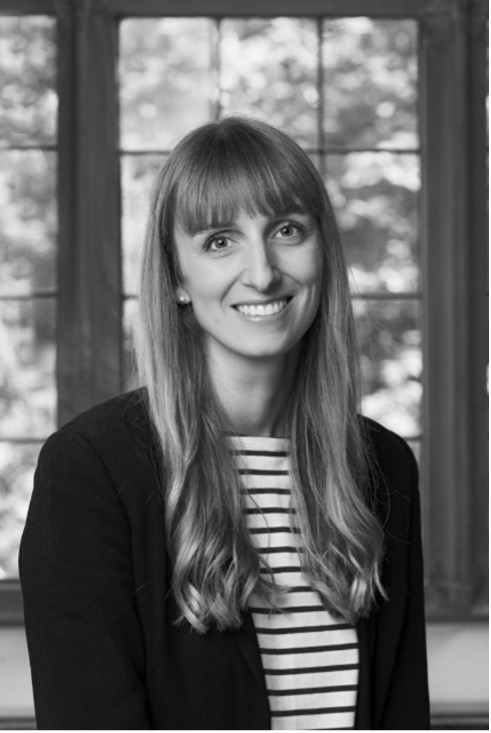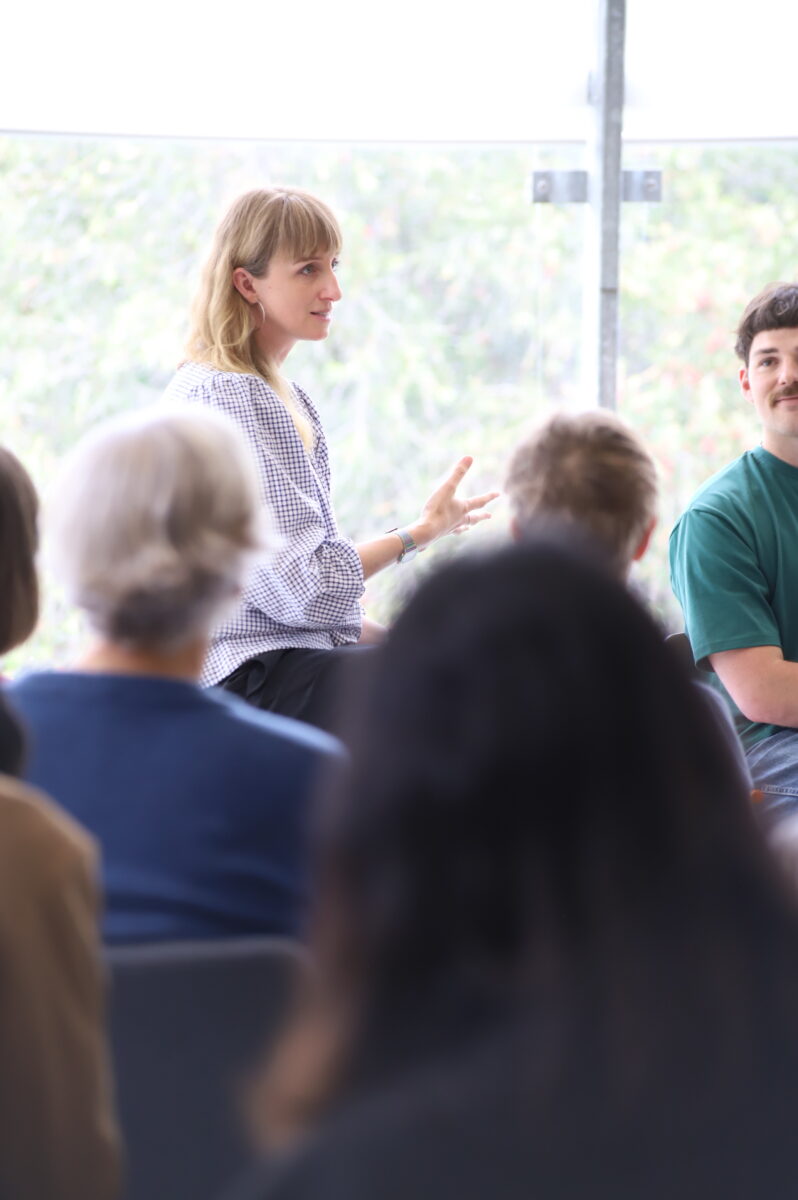Dr. Harriette Richards. Photo courtesy of Dr. Harriette Richards.
Meet our RMIT PlaceLab ‘Wear & Care’ Research Project Academic Collaborator:
Dr. Harriette Richards from RMIT’s School of Fashion & Textiles.
Dr. Harriette Richards is a cultural studies scholar whose work focuses on ethical and sustainable fashion systems, consumer culture, and fashion in the settler colonial imagination. She is co-founder of the Critical Fashion Studies research group and co-host of the ‘Critical Fashion Studies’ podcast. Her work has been published in a range of journals including Cultural Studies, Gender, Work & Organization, Continuum: Journal of Media & Cultural Studies, Australian Feminist Studies and the International Journal of Crime, Justice and Social Democracy. She has also been published in the edited collections Rethinking Fashion Globalization (Bloomsbury 2021) and Fashion and Feeling: The Affective Politics of Dress (Palgrave Macmillan 2023). In 2021, she co-edited a ‘Fashion Futures’ special issue of Continuum: Journal of Media & Cultural Studies with Professor Natalya Lusty and Dr. Rimi Khan.
It was a pleasure to have Harriette collaborating with us as part of our ‘Wear & Care’ Research Project and facilitating our recent ‘Wear & Care’ Community Forum discussion!
“The local community can certainly contribute to more ethical and sustainable engagement with fashion through participation in alternative forms of consumption, for example through second-hand shopping, clothing swaps and sharing. However, they can also contribute by engaging in conversations about the ethics and sustainability of the fashion industry and sharing these conversations with their loved ones.”
Can you tell us a bit about your own research and how it intersects with RMIT PlaceLab’s ‘Wear & Care’ Research Project?
My work broadly investigates issues of ethics and sustainability in fashion. This has included research about the impact of Modern Slavery legislation on consumer behaviour and industry practice in Australia, and research about ‘radical transparency’ in fashion.
Currently, I am conducting research that looks at the role of ethical and sustainable third-party accreditation and certification systems for Australian fashion social enterprises and how such accreditation might encourage or support improved production and consumption practices.
How do you think the current sustainable fashion landscape is doing? (Locally, Nationally, and Globally?)
Globally, I think there have been some positive moves in the right direction, especially with government legislation such as the Strategy for Sustainable and Circular Textiles in Europe, and the Fashion Sustainability and Social Accountability Act in New York. Nationally, the Seamless scheme is encouraging, although I do think it requires legislating and enforcing in order to achieve what it sets out to accomplish. It is often at the local scale where the most radical, grassroots action takes place and we can see that here in the form of repair cafes, the rise of mending workshops and the demand for alternative services, all of which indicate an increasing awareness of and concern for the sustainability of our clothes.
What are some ways the local community can actively and practically contribute to a more ethical and sustainable approach to fashion?
The local community can certainly contribute to more ethical and sustainable engagement with fashion through participation in alternative forms of consumption, for example through second-hand shopping, clothing swaps and sharing. However, they can also contribute by engaging in conversations about the ethics and sustainability of the fashion industry and sharing these conversations with their loved ones. Understanding the scope and complexities of the issues is very much the first step in the process of system change.
What are some interesting initiatives, individuals or organisations doing exciting things along the continuum of fashion ‘taming’ and ‘rewilding’?
It was wonderful to be involved in RMIT PlaceLab’s ‘Wear & Care’ panel and to hear from people who are doing wonderful, exciting things to disrupt and challenge the mainstream fashion system. The panellists were:
- Cathy Allizi from the Multicultural Women’s Sewing Group, teaching and supporting women from diverse backgrounds to sew.
- Kirsta Hawkins from Mutual Muse, a second-hand consignment store in Brunswick and Thornbury.
- Luke Phillips from Into Carry, which makes bags out of post-consumer waste.
- Jennifer Thorman from Second Stitch, which employs and educates new migrant women.
- Miriam Borcherdt, PhD Candidate at RMIT.
If you would like to keep up to date with Dr. Harriette Richard’s work, follow her on Instagram at @harrietterichards and @criticalfashionstudies.
Dr. Harriette Richards facilitating the ‘Wear & Care’ Community Forum discussion. Photo by Vanessa Duque.

